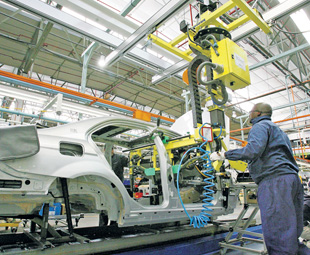Fighting the good fight

They say that any publicity is good publicity. I don’t think so, especially not when so much is going wrong.
That famed South African expression – eish! – so aptly describes what is going on in our automotive and transport sectors right now.
But I fear the current situation is a bit worse than that – it’s disgusting, sad and maddening.
It makes me wonder why publications like ours try to focus on all the positives that come from our industry. Why do we try fight for the advancement and betterment of our industry? Why do we try make sure people realise that the transport, logistics and automotive sectors are – as a whole – not in fact the fire-breathing, earth-killing, life-taking, economy-crumbling monsters so many think they are?
Why, when in fact there is so much going on fuelling that exact opinion? So much which the industry is, both directly and indirectly, responsible for.
Last month we had a field day expressing our concerns around the most recent strike action by workers affiliated to the National Union of Metal Workers (Numsa). When I penned my piece the strike was but a few days old. It took three weeks to be settled with two unlucky original equipment manufacturers (OEMs) having to endure an extra week of lost production.
That lost production – of over 45 000 vehicles in total – meant a production revenue loss of about R20 billion. It gets worse. According the National Association of Automobile Manufacturers of South Africa (Naamsa), the strike action had “damaged South Africa’s status as a reliable supplier to international export markets and could well negatively affect future export contracts being awarded to South African automotive manufacturers”.
This would have a crippling effect on our country’s economy, especially considering the fact that the vehicle and automotive component manufacturing sectors account for approximately 30 percent of South Africa’s manufacturing output.
Eish!
Yes, the industry was the victim in this instance.
There was, however, another instance this past month where the industry was not the victim, but almost wholly accountable. Yes, I’m talking about the Pinetown truck accident of September 6.
At this stage reports are numerous and finger-pointing is rife – inexperience and fraudulent documents on the part of the driver, evasion of the law by the owner – what exactly happened that evening to lead to the death of 23 people will undoubtedly be the subject of a long, drawn-out court hearing. But it worries me that, at this stage, only the driver finds himself in the docks. Why not the owner of the company? Why not those who, it is said, serviced the vehicle before it set off on its journey?
Each party will undoubtedly be called upon to give testimony, but should they not all be held jointly and severally liable for this tragedy from the start?
If the friend of average mister Johannesburg shoots an intruder in his home with average mister Johannesburg’s firearm, they are both held accountable until it is proven that average mister Johannesburg was incapacitated, the action was taken in self defence, and the circumstance was unavoidable. A life was taken by one with the lethal weapon belonging to another …
We should all feel incensed by the Field’s Hill tragedy – murky circumstances aside, it could have happened with any driver in any vehicle belonging to any operator. Unfortunately, the public only sees the truck. The truck (and its driver) is the bad guy.
We know that’s not the case. We know there is much more to it. We know our industry is not made up only of fire-breathing, earth-killing, life-taking, economy-crumbling monsters. And we try desperately to get that point across.
But operators, both big and small, and drivers, both rookie and experienced, genuinely need to fight for it too. We can’t just stand around, hands on head, going “eish!”
Published by
Focus on Transport
focusmagsa




